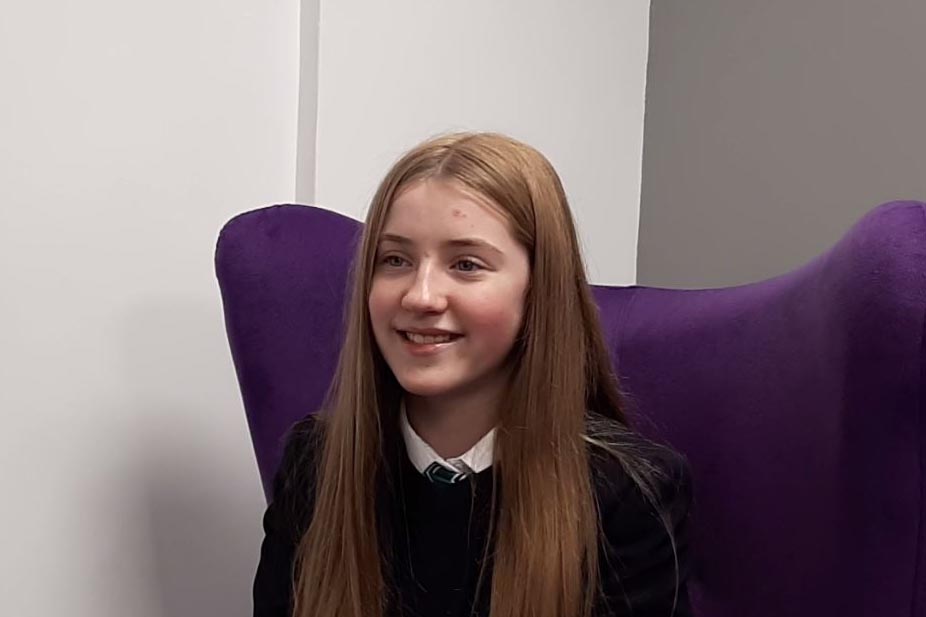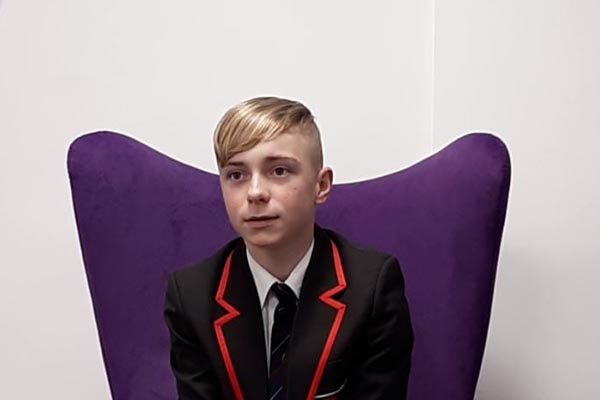The theme for this year’s Children’s Mental Health Week, ‘‘Express Yourself", fits beautifully with processes of self-exploration, acceptance and change that we are often privy to when we work with children and young people within counselling settings.
Although children and young people’s experience differs greatly, it's not uncommon to hear that counselling offers a space for them to really begin to explore who they are, what they think and how they feel about themselves and their lives.
Therapists are often told ‘’I can be my true self here’, and as our younger clients test the concept of self out more and more within the confines of the counselling relationship, this confidence and self-expression begins to filter out into the wider world and impacts on other relationships too.
Strong sense of self
Self-acceptance and feelings of positive self-worth come hand-in-hand with opportunities to explore a strong sense of self, vital components for positive mental health. What safer way to embark on a journey of self-discovery, at times of psychological distress, than access to universal school, college or community based counselling provision, regardless of where a child or young person lives in the UK.
That’s why we continue to call government funded counselling services in every school and college in England, so that all children and young people, aged 10 and above, have access to early help support to explore issues that are troubling them and causing them worry.
We know from a recent IPPR study in the first wave of the pandemic that counselling provision is patchy within schools in England and that there is more provision in more affluent areas. We need to address this imbalance. It’s beginning to feel more and more like a children’s equality rights issue, with the IPPR study demonstrating that only 48% of schools in England offered on-site counselling.
Accessible for all
Counselling needs to be accessible for all and should not dependent on diminishing school budgets or funding linked to which side of the same street a child lives on, as a third sector project in Liverpool recently explained to me.
Government funded counselling provision has long been part of the landscape in Northern Ireland and Wales, with the Welsh Government planning to extend this offer to primary aged children. Scotland are embarking on their first academic year where school based counselling provision is now in place, yet England continues to lag behind.
There is some good news though. The momentum for supporting our school and college counselling campaign feels stronger than ever. During 2020, we gained support from leading mental health charities, also making a noise about funding counselling provision. From September to Christmas last year, 34 parliamentary questions were asked from cross party MPs with a focus on funding counselling provision in England, somewhat influenced by our campaign. 32 MPs have signed up to the Early Day Motion, with our members playing a critical role in lobbying MPs to write directly to the Chancellor, Rishi Sunak, to support this cause.
Pressure on the Government
We’ll continue to put pressure on the Government to support our ask. We’ll continue to lobby for a paid counsellor in every school. We’ll continue to raise the profile of school counselling embedded in evidence-based research, while supporting the full myriad of mental health support available to children and young people in schools, colleges, health and community settings.
As our profession evolves and adapts to the ever changing needs as we move through the pandemic, one aspect remains constant - those creative opportunities within counselling where children and young people feel able to safely explore that sense of self. Let’s celebrate this as part of Children’s Mental Health Week and beyond.
Eleanor's poem
The subject of young people expressing themselves came up in conversations I had with young people recently from Liverpool’s Young Person’s Advisory Service, a charity that supports children, young people and families to address their mental health and emotional well-being difficulties.
One of the young people, Eleanor, wanted to share with our members a poem she'd written inspired by the theme of this year's Children’s Mental Health Week.
Eleanor, 21, told me how she struggles with anxiety, depression and CPTSD and added “being creative helps me express how I feel and also it helps me improve my mood when things are tough when I accomplish something.”
I’m pleased to be able to share her powerful words with you.
Find out more...
Read more

Effectiveness of school counselling revealed in new research
It’s the first, large-scale study of its kind to be carried out in the UK

‘At the beginning I only went to school for the counselling sessions’
Watch Daisy talk about how a counsellor helped her cope with anxiety and return to school

'My counsellor listened to me, now I'm more confident'
Watch Ryan, 14, talk about how counselling helped him after his friend died
